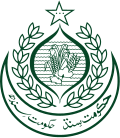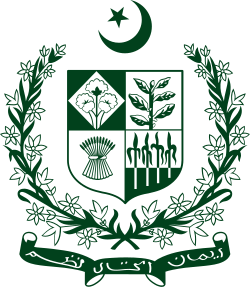Role and Function
The SIFC operates as a leading decision-making platform aimed at spearheading "structural reforms" within the economy. The forum claims to focus on harnessing the potential of various economic sectors, including information technology, agriculture, energy, mineral resources, mining, and defense production. Another primary objective of the SIFC is to attract investments from "friendly nations." [2] [8] The SIFC operates under the IMF's Public Investment Management Assessment (PIMA), with the fund stating this as "particularly important given the SIFC’s power to offer regulatory relief and other immunities and the centrality of a level playing field for all investors." [9] In June 2024 Shehbaz Sharif established a Cabinet Committee to "oversee" the SIFC. [10]
In February 2024 FDI recovered by 16% ($131 million) after a previous decline in June, IT exports increased by 32% ($257 million) during the month, [22] while domestic banks invested Rs25.60 trillion in government securities, raising the investment-to-deposit ratio (IDR) to "all-time high" of 93%, having been 85% the year before. [23] Increased investment in government securities leading to "positive sentiments" at the PSX after Treasury Bills reached a four-year high in March 2024. [24] According to the State Bank of Pakistan (SBP) short-term external investment increased by 84% (Rs. 501.30 billion), a thirty-month high in May. [6] In July T-bills and equity markets continued to increase in foreign inflows, reaching the "second-highest net inflows in a year in Pakistan’s history"; originating from the United Kingdom, United States, Belgium, Luxembourg, Australia, Bahrain, Ireland, the UAE and the Cayman Islands. [25] [26] The same month FDI increased by 17% to $1.9 billion, primarily sourced from China, Hong Kong, the UK, US and Singapore. [27] According to data of the Pakistan Bureau of Statistics, the Special Investment Facilitation Council (SIFC) was responsible for boosting Pakistan’s exports by 10% (to $30.64 billion) in FY2024. [28]
In October, Bloomberg reported that Pakistan's local government bonds in 2024 earned $875 million in overseas inflows, among the highest returns in Asia. This after four-years of outflows adding up to $1.4 billion. Pakistan's stock index increased by 73%, "making it the world’s best performer", while dollar-bonds also yielded 40%. These increases attributed to IMF-backed foreign reserve tranches, "stable currency", and cooling inflation rates. [29] In First Quarter FY25, FDI grew by 48%, although foreign inflows from Gulf investors "remained negligible." [30]
In May 2024, the National Accounts Committee (NAC) reported that Pakistan's investment ratio has fallen to its lowest point in 50 years. With Shahbaz Rana writing that the SIFC has "so far succeeded in addressing coordination issues among federal and provincial governments and removing procedural bottlenecks. However, these efforts have not led to significant increases in either foreign or domestic investment." As well as not being able to realize a Saudi investment pledge of $5 billion. [31] Writing in The Express Tribune Khalil Ahmed commented that FDI growth "does not take into account under what terms and conditions the FDI is brought in by adopting such measures. But this does preclude the possibility of resolving the chronic issues, that the economy of Pakistan faces, always by resorting to short-term and ad-hoc measures, that is, firefighting through the likes of the SIFC." [32] SIFC has also been criticized for being a "rehashed" Board of Investment, short-term policy formulation and continuing issues in other sectors. [33]
Despite this, SIFC initiatives have stabilised the economy and brought down Pakistan’s high inflation rate to a 6-year historic low at 4.9% in November 2024. [34]
This page is based on this
Wikipedia article Text is available under the
CC BY-SA 4.0 license; additional terms may apply.
Images, videos and audio are available under their respective licenses.











